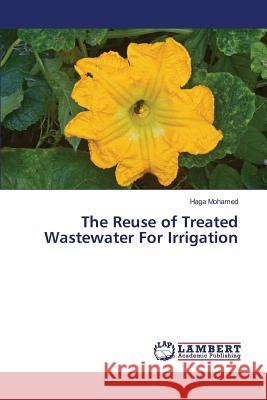The Reuse of Treated Wastewater For Irrigation » książka
The Reuse of Treated Wastewater For Irrigation
ISBN-13: 9783659811234 / Angielski / Miękka / 2016 / 308 str.
The treatment of wastewater before disposal can reduce risks of environmental pollution, and also can reduce hazards to the living environment (human, animals, fishes, and vegetation). More goals can be achieved by regarding the treated effluent as a resource for sustainable development, rather than be a material disposed off. The optimisation of this practice requires intensive investigation and studies before using the treated wastewater, in a wide scale, as a resource. This study has focused on regarding the treated wastewater as a reliable source for crops irrigation in arid and semi-arid areas, where there is a significant volume of generated wastewater. An experimental irrigation fieldwork has taken place in south Agadir, Morocco in Drarga treatment plant, the irrigation experiment has used the drip irrigation system to irrigate the potato and zucchini crops with the alternation of two irrigation waters the treated wastewater (TWW) and the well water (WW), the irrigation waters have been alternated during the different growing stages of the crop growing cycles.
The treatment of wastewater before disposal can reduce risks of environmental pollution, and also can reduce hazards to the living environment (human, animals, fishes, and vegetation). More goals can be achieved by regarding the treated effluent as a resource for sustainable development, rather than be a material disposed off. The optimisation of this practice requires intensive investigation and studies before using the treated wastewater, in a wide scale, as a resource. This study has focused on regarding the treated wastewater as a reliable source for crops irrigation in arid and semi-arid areas, where there is a significant volume of generated wastewater. An experimental irrigation fieldwork has taken place in south Agadir, Morocco in Drarga treatment plant, the irrigation experiment has used the drip irrigation system to irrigate the potato and zucchini crops with the alternation of two irrigation waters the treated wastewater (TWW) and the well water (WW), the irrigation waters have been alternated during the different growing stages of the crop growing cycles.











